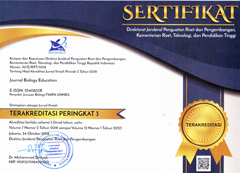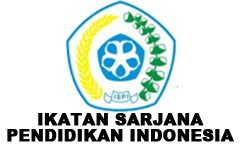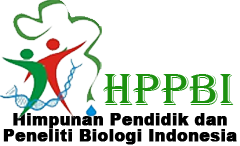The Effectiveness of Problem Based Learning Model on Virus Material of Senior High School on Science Process Skills and Student Learning Outcomes
Science Process Skill and Student Learning Outcomes in Senior High School
Abstract
Student learning outcomes at Pemalang 2 High School are still low students are less actively involved in learning activities. This is because Biology learning applied by the teacher still uses the lecture model. In this learning model, the teacher has not developed science process skills (SPS). One learning model that can be applied to improve SPS and student learning outcomes is problem-based learning. The purposes of this study are to determine the differences in student learning outcomes in virus material, to determine the effect of the application of problem-based learning models to student SPS, and to test the effectiveness of problem-based learning. This research is a quasi-experiment with nonequivalent control group design. The research sample is determined by purposive sampling. Data collection is done by test, observation, and questionnaire methods. The results show that the percentage of students classical completeness in the experimental class reach 88% while the control class is 72%. The results of the ttest show tcount = 2.80> ttable = 1.99 so that there is a difference in learning outcomes increase in the experimental class. The N-gain test shows the N-gain value of the experimental class 0.62 and the control class 0.52. The improvement of students' understanding in the experimental class was better than the control class. Student's SPS increase is directly proportional to student learning outcomes. Based on the results of the study, it is concluded that there are significant differences from the learning outcomes of the control class and experimental class. The application of problem-based learning has a positive influence on student SPS and problem-based learning is effective in student learning outcomes.
The copyright of the article once it is accepted for publication shall be assigned to the journal as the publisher. The intended copyright includes the right to publish the article in various forms (including reprints). The journal maintains the publishing rights to the published articles.
This work is licensed under a Creative Commons Attribution 4.0 International License.







